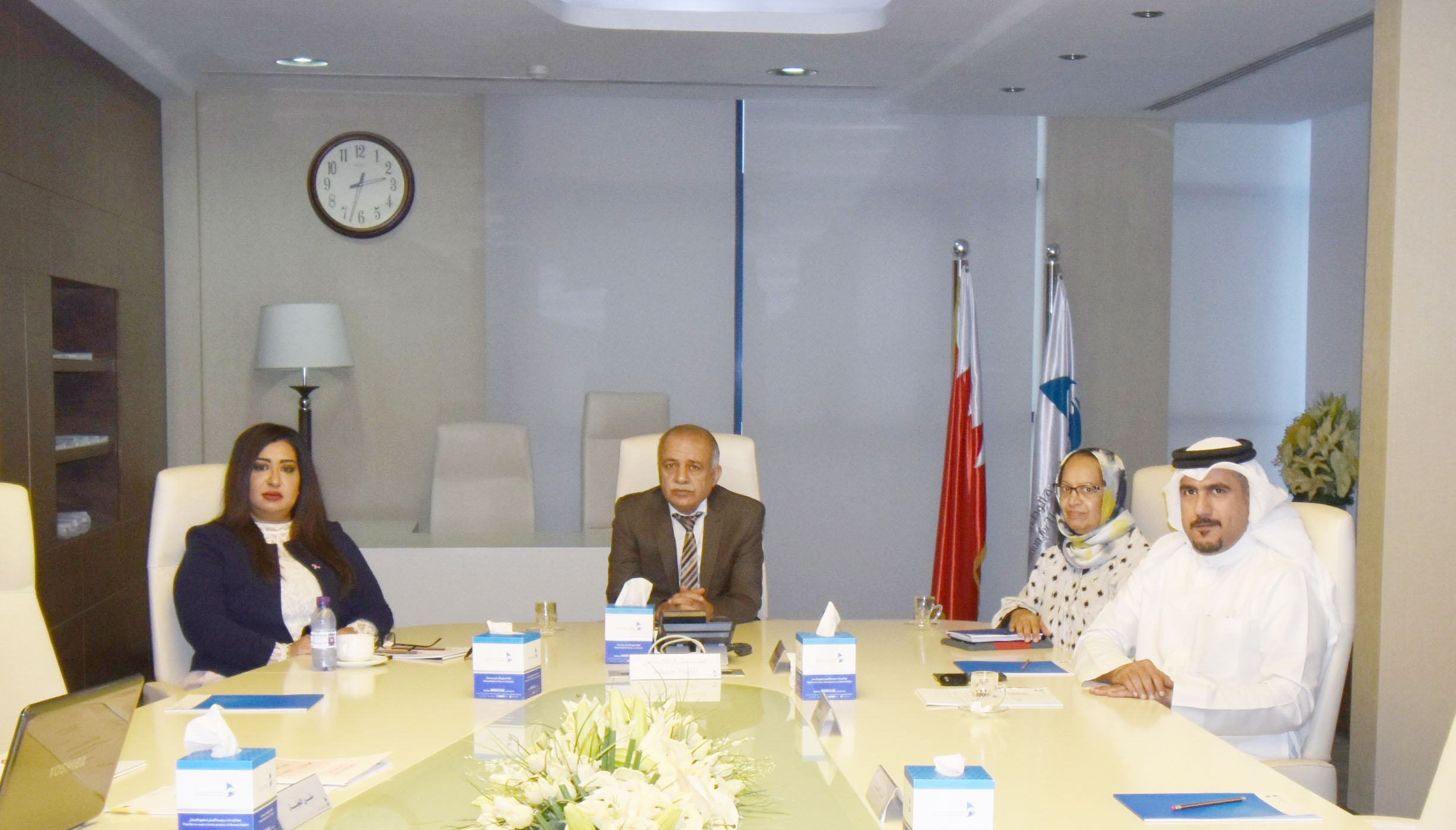NIHR’s Committee on the Rights of Persons Deprived of Liberty convenes its 7th Regular Meeting
21 Oct 2019

The National Institution for Human Rights (NIHR)’s Committee on the Rights of Persons Deprived of Liberty convened its 7th regular meeting under the chairpersonship of Dr. Hameed Ahmed Husain and membership of Mrs. Deena Abdulrahman Alladhi, Dr. Fawzeya Saeed Alsaleh and Mr. Ammar Ahmed Albannai, at the NIHR’s headquarters in Seef district.
The Committee discussed its visits during October to both the Muharraq Maternity and Elderly Care Hospital as well as the Male Expats Accommodation and Deportation Center of the Nationality, Passports and Residency Affairs in the Southern Region (Alba) of the Ministry of Interior. The Committee examined what has been monitored during these visits and made its recommendations. The Committee also discussed the report of its visit to the Northern Governorate Police Directorate (Hamad City) last August, and examined its outcomes and recommendations in preparation for its adoption and submittal to the Chairman of the NIHR to take the necessary action.
The Committee reviewed the actions taken on its resolutions and recommendations from its previous meetings and examined the actions taken thereupon. It has concluded its meeting by adopting the plans of its proposed visits for November.
It is worth mentioning that the Committee on the Rights of People with Restricted Freedom conducts announced and unannounced visits to a number of reform, rehabilitation and retention centers affiliated to the Ministry of Interior as well as care centers, hospitals, etc. in order to check the human rights situation in those centers and ensure that all inmates enjoy the basic rights guaranteed to them by the Constitution and relevant national legislation, pursuant to the provisions of the NIHR Incorporation Law, especially Article 12 (g) stipulating that, “The NIHR, in order to accomplish its goals, may conduct declared and undeclared field visits, to monitor the human rights situation in correctional institutions, places of detention, labor gatherings, health and education centers and any other public place suspected to be a site for human rights violation.


